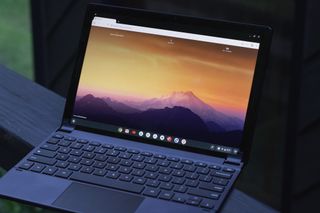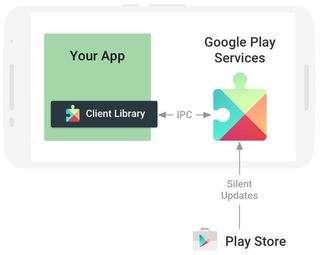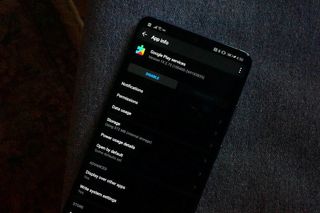No, Chromium browsers aren't going anywhere any time soon

I've seen something being shared around that looks like terrible news for anyone who loves the way Chrome can render a web page but hates the extra bloat that's baked into Google's browser. According to It's FOSS — a web site dedicated to all things open-source and a site I read regularly — third-party browsers that use Chromium are being locked out of certain features because Google is worried about market share.
That would be a devastating loss to you, me, and the internet as a whole if it were the case, but I don't think it has anything to do with the market share of Chrome or that Google really cares about the particular features in play here. It's just Google making sure that only you and it have access to sensitive information stored in your Google account.
What is going on here?
Starting on March 15, 2021, developers writing Chromium-based browsers like Brave or Microsoft Edge can no longer have open access to a small set of features: Chrome sync and Click to Call. These are two very nice features, especially if you use multiple devices with the same Google account.
I love using Chrome sync but hate the idea that my data is just sitting there in the cloud.
Chrome sync is the utility that lets you store things like bookmarks or passwords in the cloud and retrieve them as long as you're signed in to Google using the same account on any number of devices. I use it a lot and hate to think about not being able to keep using it. Click to Call is exactly what it sounds like — when the browser sees something it recognizes as a phone number, you can tap it and call that number automagically through your Android phone.
That's it. Everything else in Chromium, the open-source code that Google uses to build Chrome and companies like Microsoft use to build Edge, is still open and free. Free not only as in it costs nothing, but also free as in anyone can modify it and use it the way they like. That's why so many other companies make Chromium-based browsers. The web works really well using it and it's there for the taking.
This is happening, even Google admits that it is "limiting private API availability in Chromium" and that these features should have never been available to any company not named Google.
The part I don't agree with is that Google is doing it because it fears Opera or Brave will take away its browser market share.
Be an expert in 5 minutes
Get the latest news from Android Central, your trusted companion in the world of Android
Private APIs

You're probably familiar with what a private API is even if you never heard the term before — your phone uses a lot of them.
Samsung has its own APIs. So does OnePlus, or Motorola, or any other Android-powered phone. Well, Google has them, too. Most of Google's "private" APIs aren't limited to only Pixel phones because of things like the Google Services Framework, but Pixel phones also have features that no other phones can use, like the camera algorithms or the Pixel Recorder app.
Chrome doesn't have something akin to the Google Services Framework. Sure, the best Chromebooks can use Google Play Services for running Android apps, but there is no ready-made set of "private" APIs built for the browser to use. If there were, this would have never happened because it would give Google the one thing it wants to have: control.

Google pillages a lot of personal information whenever we use its products, though it is working on ways to pare that back pretty drastically. But Google also realizes that if it is going to have so much information, it really needs to safeguard it. We would all be pissed if someone hacked Google and stole a bunch of our data, and Google wouldn't make as much money selling personalized ads.
The only way Google can meet its obligations in regards to safely holding our data is to keep it between us and them.
The only way Google can meet its obligations in regards to safely holding our data is to keep it between us and them. Once you allow any other company access through its product, you either need to have a ready-made solution or you risk that data being used by another company.
Simply put, if Google were to allow third parties access, even "trustworthy" third parties like Opera or Microsoft, it would have to have a pre-built set of APIs that control things like encryption, destination, and authentication in order to make sure none of that data could be exposed. Google doesn't think that the Brave Browser is somehow going to gain 66% of the browser market even if it allows the company to use Chrome sync.
The good news

Google's cloud "services" allow you to sign into and use any of its products and will continue to do so even after the March 15 deadline. None of that is going to change. And if you build Chromium for personal use, you can even include Chrome sync through its cloud platform APIs and Services Library for free. You're simply rate-limited and can only use the API a certain number of times in a set time period, which is fine for your own pet project Chromium browser. Developers who build Chromium for commercial services — Brave has to make money somehow, right? — might have to pay for this sort of access, though.
There are a lot of things Google does that we dislike. I could write a whole series of articles about them, in fact. But given Google's new policies around third-party cookies and better anonymization of user data, cutting off free unfettered access to sensitive private APIs that can sync your passwords and credit card numbers actually makes sense. I have been told I can be a little tough on Google and the decisions it makes, but that's because I expect it to always do better.
This time, Google actually is.

Jerry is an amateur woodworker and struggling shade tree mechanic. There's nothing he can't take apart, but many things he can't reassemble. You'll find him writing and speaking his loud opinion on Android Central and occasionally on Twitter.
